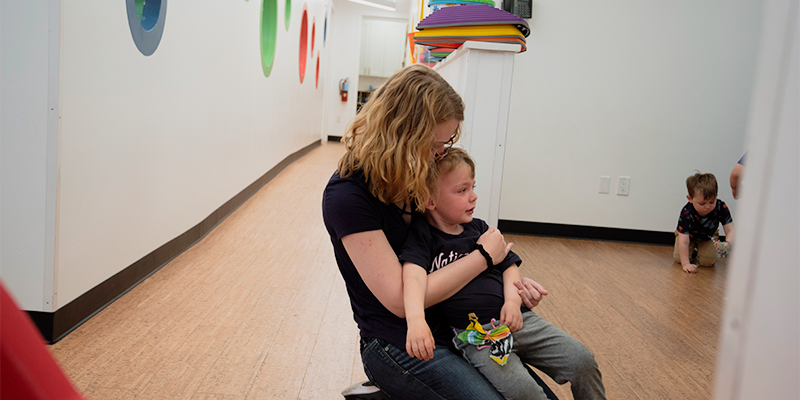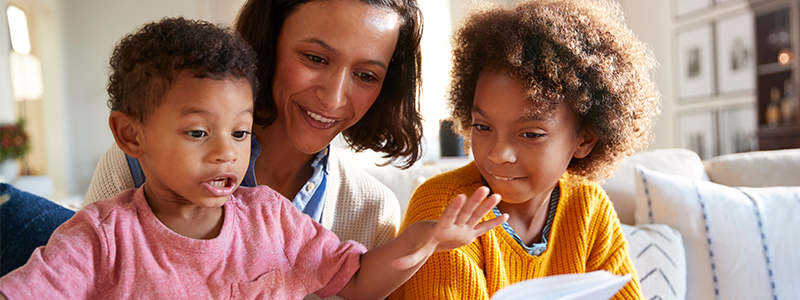
When we talk about health and safety in child care, the discussion is often focused on reducing or eliminating physical threats to children’s well-being (e.g., unsafe playground equipment or the spread of an infectious disease). But there’s something else just as important as safeguarding children’s physical health: promoting their mental health. In young children, mental health is the same thing as healthy social and emotional (S-E) development.
CCAoA believes that S-E health is essential to helping children live long, healthy – and happy -- lives. This month we are publishing four blog posts about young children’s S-E health. In today’s post, we talk about what it is – and isn’t – and how CCR&Rs can promote it. Future posts will cover responsive caregiving, trauma-informed care and social-emotional health for the child care workforce.
What is it and why is it important?
Social development refers to a child’s ability to establish and maintain close relationships with adults and other children. Emotional development is a child’s ability to express and manage emotions. In young children, these two types of development are intricately linked.
Social and emotional health affects children’s overall development. Those who develop strong social and emotional skills tend to be happier, are more motivated to learn and perform better academically. Children who struggle with social-emotional development are more likely to have trouble following directions, have low self-esteem and do poorly in school. There can be lifelong consequences.
S-E Health in Child Care
S-E health is not a curriculum that providers should follow. Rather, it is a way providers interact with children to establish close and nurturing relationships. NAEYC has a publication on its website called Promoting Young Children’s Social and Emotional Health. In it, the authors list specific strategies providers can use to establish trusting relationships with children in four areas:
- Showing warmth and affection
- Respecting and caring about every child
- Teaching social and emotional skills
- Modeling appropriate behavior
Providers may not realize the many ways in which they already do these things. They: position themselves at children’s eye level; listen to a child with their full attention; give effective praise; gently re-direct children’s behavior; etc.
What can CCR&Rs do?
- Website/social media: Share social media posts with simple tips for how to promote social-emotional health in child care. Create your own, or choose ready-to-post graphics from our Social Media Share Kit.
- Referral and consumer education: Educate families about some of the simple behaviors and practices that can promote social-emotional health in child care. Add questions about caregiver-child interactions to your child care visit checklists so families know what to look for when visiting a new child care program.
- Basic knowledge or pre-orientation trainings: Include information about social-emotional health and development in your basic knowledge trainings for new child care providers. New staff may not be aware of how much their words and body language can influence children’s social-emotional development and well-being.
- Professional development: Most states include social-emotional development in their Early Learning Guidelines. When creating new professional development trainings or programs, think about how you can incorporate skills and concepts that align with your state’s social-emotional development guidelines.
- Technical assistance: Train your quality coaches and technical assistance specialists to assess how well child care providers are promoting social-emotional health and support them in improving their practices.





